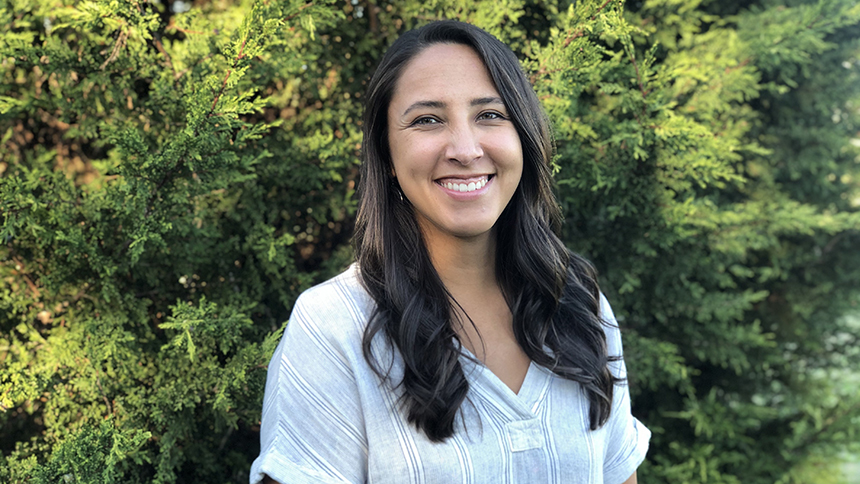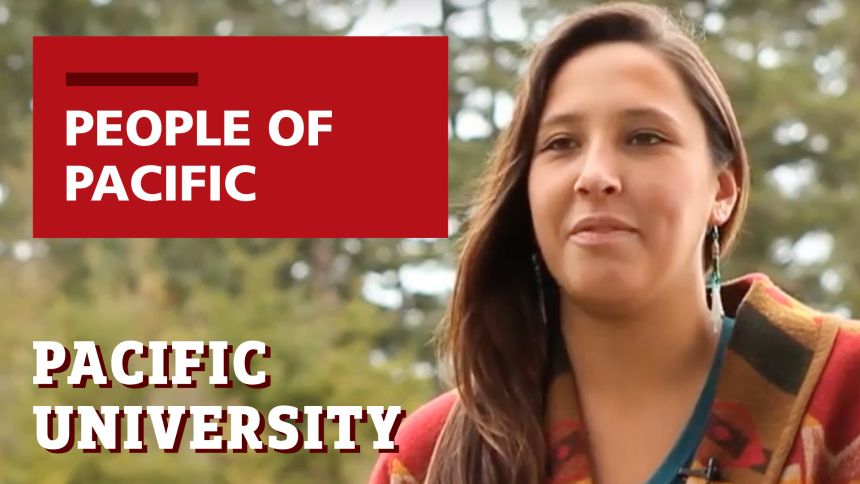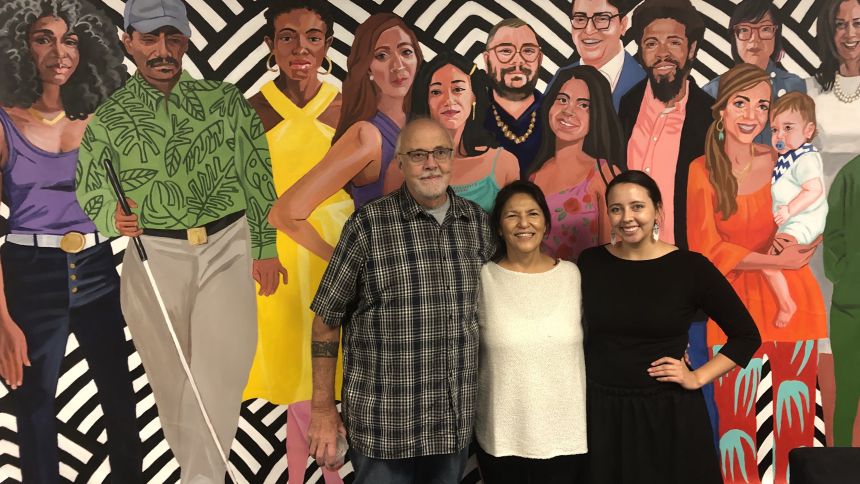 In 2014, Charlotte Basch ’14 took members of Pacific University’s staff to Ne-ah-coxie at Neawanna Point Habitat Reserve on the north Oregon Coast.
In 2014, Charlotte Basch ’14 took members of Pacific University’s staff to Ne-ah-coxie at Neawanna Point Habitat Reserve on the north Oregon Coast.
A senior at the time, Basch was sharing the story of her life and her passion for increasing awareness of her people’s history in a story and video for Pacific magazine.
It only made sense to visit one of her favorite places — which is also the ancestral home of her Clatsop and Nehalem ancestors and the place where Lewis & Clark stayed when they met with her great-great-great-grandfather, Clatsop Chief Coboway in 1805.
“That’s where I thought was best to go, not only to show the beauty of the Oregon Coast, but because that land has been important to the Clatsop-Nehalem community for so long,” she said, in a follow-up conversation in December 2020. “It’s been important to me, and there are Clatsop-Nehalem people who have been working for years to hold any piece of the land possible.”
In May 2020, the North Coast Land Conservancy transferred ownership of Ne-ah-coxie back to the Clatsop-Nehalem tribe.
“It’s a huge deal for the tribe and community that I have only had a small piece in,” she said. “It was almost incomprehensible how amazing it is for the tribe, the Clatsop-Nehalem community, and Oregon as a whole,” she said.
It’s also one of many ways that Basch feels things are coming full circle for her.
Basch grew up with a passion for advancing understanding of her heritage and reframing the historical lens through which her tribal culture is understood.
As a child, she worked with her father to help secure a grant for Fort Clatsop to remake an interpretive video about the tribe’s interaction with the Lewis & Clark expedition — and she and her family starred in the remake that now plays regularly during the fort’s visitor hours. She and her sister, fellow Pacific alumna Lorraine Basch ‘17, served as models for their ancestors in a 60-foot mural in Seaside.
She also helped coordinate the Clatsop-Nehalem tribe’s involvement in canoe journeys held each summer with other Northwest Native American tribes. In 2019, she served as skipper of her family’s canoe, which is a mix of Clatsop-Nehalem and Puyallup canoe paddlers. (Basch’s father is Clatsop-Nehalem, her mother is Puyallup. Basch is an enrolled member of the Puyallup Tribe, as the Clatsop-Nehalem lack federal recognition.)
“It was very intimidating and a huge step up from what I’d done,” she said.
As an anthropology-sociology major at Pacific, Basch’s senior capstone project centered on research on the tribe’s history and representation.
That study led her to Columbia University’s museum anthropology master’s program.
“Really in the last year at Pacific, I became more interested in how we interpret cultures and how people engage with cultures that are different than their own,” she said. “I stumbled across research from Franz Boas. He was based at Columbia, and they had a museum anthropology program. It was a no-brainer.”
After Columbia, Basch landed a job at the Burke Museum at the University of Washington, where she worked in an education outreach program that takes museum programs to schools. The state of Washington had passed a law requiring schools to incorporate local tribal history into their curriculum, and as assistant director of cultural education, she got to help bring that to life.
She later took a similar position with the Puyallup Tribe, where she spent her early childhood. “It’s the tribal side of the same coin,” she said. “My job is largely working with school district’s in the Puyallup’s traditional homeland.”
Oregon recently passed a similar law about school curriculum, and Basch is curious to see how it will play out.
There are few resources behind such laws, meaning a lot of the work is placed on the tribes to provide content for local schools.
“It’s kind of a give and take,” she said. “People are having to face what little they know and face how uncomfortable it is to admit how little you know. It’s good for everyone, not just the Native communities.”
In the meantime, she’s also excited about efforts to expand educational resources about the Clatsop-Nehalem as well. They have received inquiries from schools interested in developing curriculum, and they are working on plans to develop a museum and cultural center on the returned Neawanna point land — a topic close to Basch’s heart.
“My thesis at Columbia was entirely about a Clatsop-Nehalem Cultural Center and what it means for tribes to examine their own culture,” she said. “That spun out from my thesis at Pacific. It feels like it’s slowly coming full circle.”

